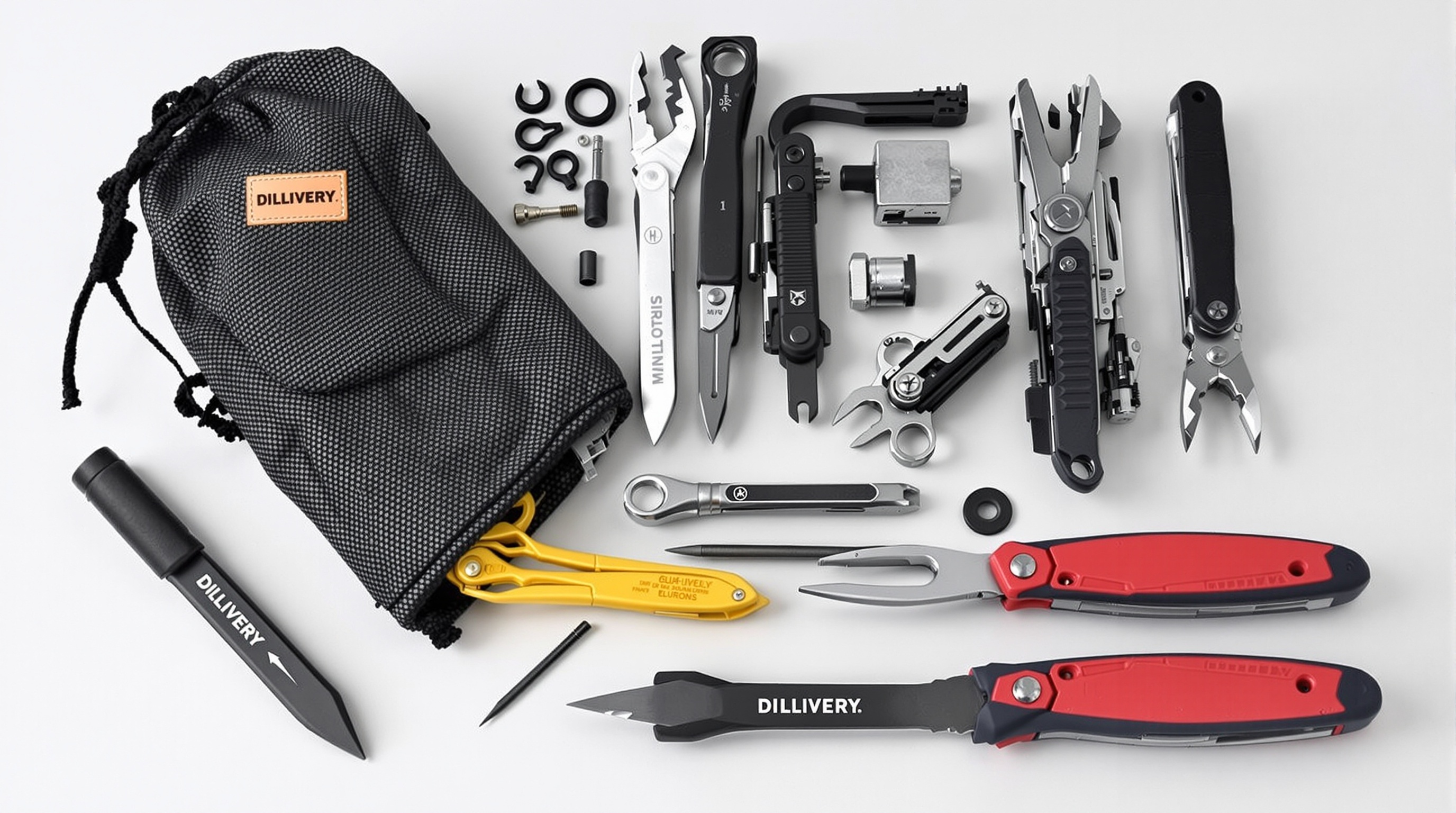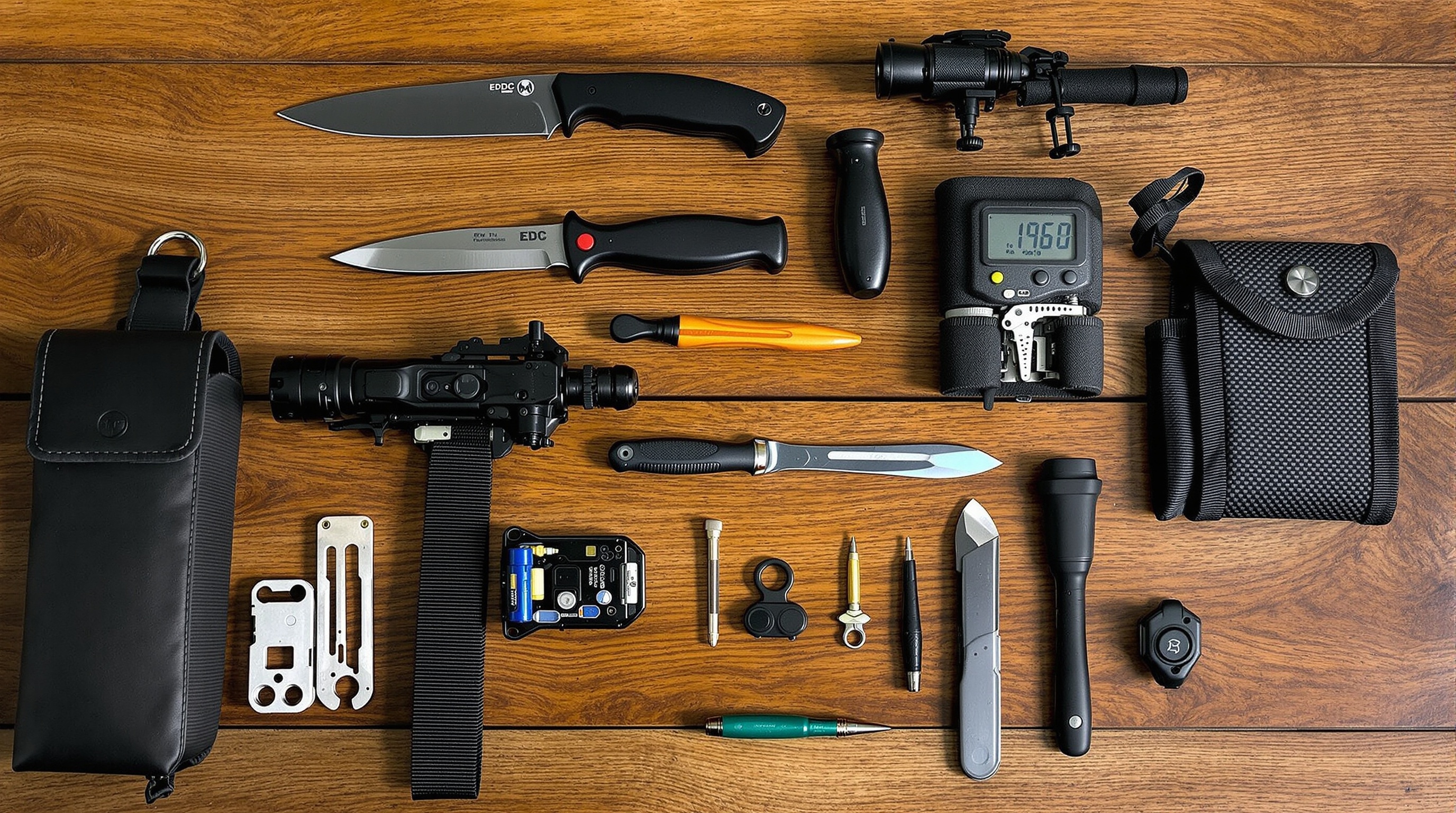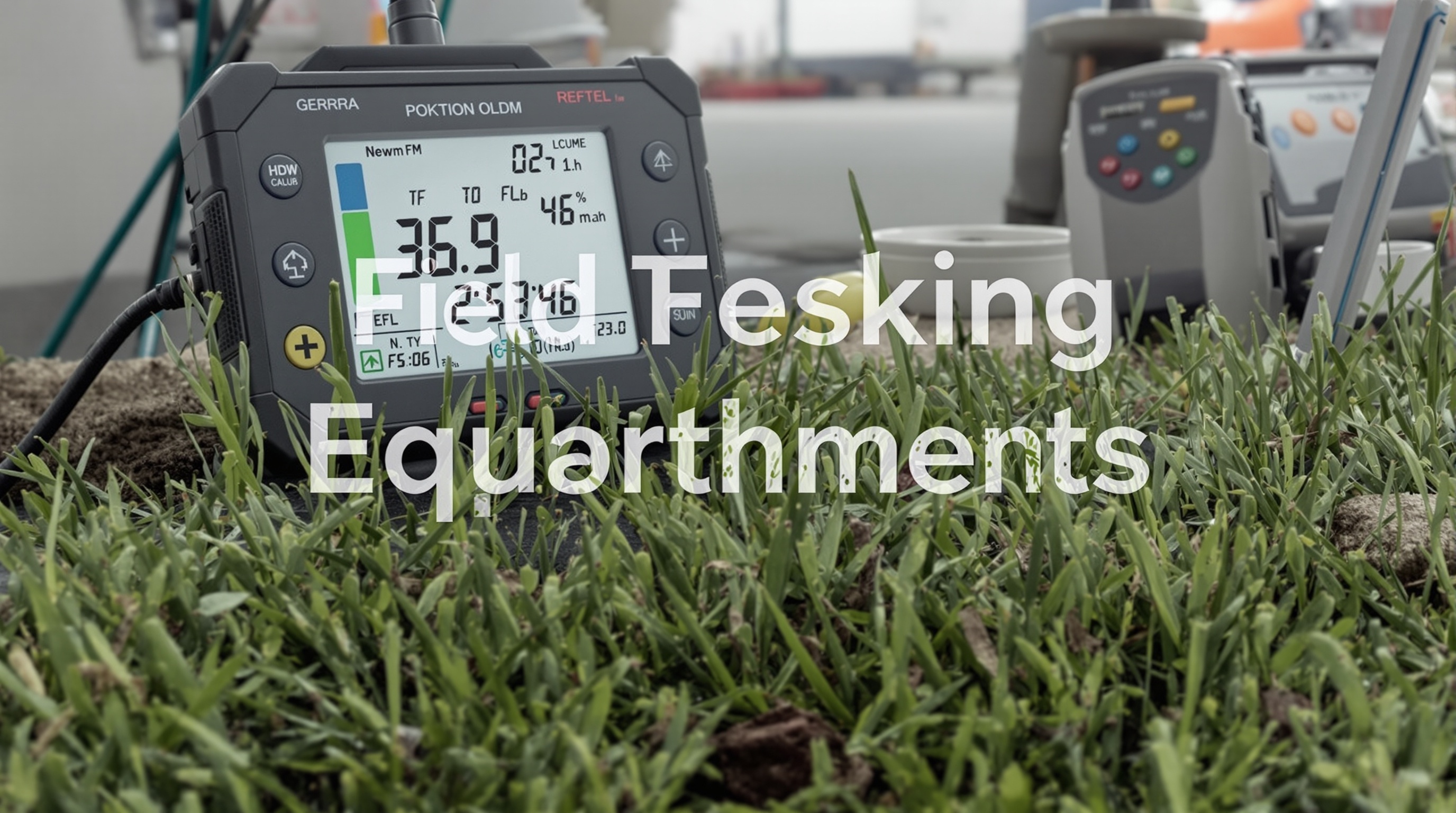Top Everyday Carry Tools for Practical Use and Portability
Discover the best everyday carry (EDC) tools for daily tasks, from multi-tools to compact gadgets. Learn how to choose, maintain, and optimize your EDC setup for any lifestyle.

Everyday Carry (EDC) tools are compact, portable, and multifunctional gadgets designed to handle life’s daily challenges—whether you’re opening packages, making minor repairs, or facing emergency situations. In this guide, we’ll explore the most essential EDC tools, how to choose the right ones for your lifestyle, and why materials, size, and versatility matter for functional everyday preparedness.
Understanding EDC Multi-Tools
Everyday Carry (EDC) multi-tools are compact, versatile instruments designed to be easily carried and readily accessible for a wide range of daily tasks. These tools combine multiple functions into a single, portable device, making them invaluable for professionals, hobbyists, and anyone who values preparedness and efficiency. Understanding the types, features, and practical uses of EDC multi-tools is key to choosing the right one for your needs.
What Is an EDC Multi-Tool?
An EDC multi-tool is a compact device that integrates several tools into one unit, typically small enough to fit in a pocket, be attached to a keychain, or clipped to a belt. These tools are designed to handle everyday tasks such as cutting, tightening screws, opening bottles, and more. While the exact composition varies by model, most EDC multi-tools include a combination of blades, screwdrivers, pliers, scissors, and bottle openers.
Key Features and Components
The functionality of an EDC multi-tool is determined by its included components. Common features include:
- Knife blade: Often one of the primary tools, useful for cutting tasks.
- Pliers: Needle-nose or standard pliers for gripping and manipulating objects.
- Screwdrivers: Both flathead and Phillips options for minor repairs.
- Wire cutters: Integrated into the pliers for electrical tasks.
- Scissors: Compact and spring-loaded, suitable for trimming materials.
- Can/Bottle openers: Useful in both everyday and outdoor scenarios.
- File or saw: For smoothing edges or light sawing tasks.
Higher-end or professional-grade models may include additional specialized tools such as hex drivers, pry bars, or fire starters.
Types of EDC Multi-Tools
EDC multi-tools come in various formats to suit different carry preferences and use cases:
Full-Size Multi-Tools
These are the most robust and feature-rich, often preferred by tradespeople or outdoor enthusiasts. While they offer maximum utility, they are generally heavier and bulkier.
Compact or Mini Multi-Tools
Designed for portability, these tools fit easily in a pocket or hang on a keyring. Though they sacrifice some functionality, they excel in convenience and are ideal for light-duty tasks.
Keychain Multi-Tools
These ultra-compact tools prioritize portability and quick access. They typically include essential tools like a bottle opener, small screwdriver, and mini blade.
Materials and Durability
Quality EDC multi-tools are constructed from durable materials such as stainless steel, titanium, or high-grade aluminum. These materials ensure resistance to corrosion, wear, and breakage under daily use. Some models also feature coatings or finishes like black oxide for added protection and aesthetic appeal.
Everyday Carry Considerations
When selecting an EDC multi-tool, consider the following:
- Portability: Size and weight should align with your carry preferences.
- Tool selection: Choose a tool with functions you commonly use.
- Ease of use: Look for tools with one-hand operation or locking mechanisms for safety.
- Legal restrictions: Be aware of local laws regarding blade length or tool types.
A well-chosen EDC multi-tool enhances productivity, self-reliance, and readiness for minor emergencies. Whether you're fixing a loose screw, opening a package, or dealing with an unexpected repair, an EDC multi-tool is a reliable companion in your daily toolkit.
Compact Tool Solutions
Compact tool solutions are essential for individuals who need reliable functionality in a portable form. Whether you're a DIY enthusiast, a traveler, or a professional seeking convenience, compact tools offer a balance between versatility and minimalism. Within the Everyday Carry (EDC) community, compact tools are valued for their practicality, low profile, and ability to meet daily challenges without taking up excess space.
Mini Multi-Tools
Mini multi-tools are designed to incorporate multiple functions in a small, easy-to-carry device. These tools usually fit in a pocket, on a keychain, or within a small pouch, making them ideal for everyday use.
Portable Options:
Mini multi-tools often include essentials such as pliers, scissors, screwdrivers, bottle openers, and mini blades. Despite their size, many models are engineered for durability and precision.
Key Features:
- Lightweight and low-profile designs
- Stainless steel or titanium construction for strength
- One-handed operation or quick-deploy mechanisms
- Locking tools for safety and stability
Everyday Carry Considerations:
When selecting a mini multi-tool, it's important to evaluate size, weight, and the number of functions. For EDC purposes, tools that blend seamlessly with your lifestyle—such as those that attach to a keyring or fit in a pocket organizer—are ideal. Brands like Leatherman, Gerber, and Victorinox are popular for producing high-quality compact multi-tools.
Accessories
Compact tools are often paired with accessories that enhance their utility and longevity. These additions support organization, maintenance, and extended functionality.
Complementary Tools:
- Keychain flashlights
- Pocket pry bars
- Mini pens
- Hex bit kits
These supplementary items can expand the usefulness of an EDC setup without adding significant bulk.
Storage Solutions:
Keeping compact tools organized and protected is crucial for maintaining their effectiveness. Common storage options include:
- Pocket organizers
- EDC pouches
- Magnetic trays
- Key organizers
These solutions ensure quick access and prevent wear and tear during transit.
Maintenance Items:
Proper upkeep extends the life of compact tools. Consider including:
- Lubricants for folding mechanisms
- Microfiber cloths for cleaning
- Sharpeners for blades
- Anti-corrosion treatments
Regular maintenance ensures that compact tools remain functional and safe throughout their lifespan.
Incorporating compact solutions into your tool collection enhances your ability to respond to everyday tasks with efficiency and preparedness. These tools serve not only as practical aids but also as integral parts of a well-thought-out EDC system.
Specialized EDC Tools
Everyday Carry (EDC) tools are designed to provide convenience, functionality, and preparedness in a compact and portable form. While general-purpose tools like knives and flashlights are often staples in EDC kits, specialized EDC tools cater to particular tasks and offer enhanced utility for users with specific needs. These tools combine precision engineering with durable materials, making them reliable companions for professionals and enthusiasts alike.
Pry Bars
Pry bars are compact, multi-functional tools that offer leverage for light-duty prying, opening boxes, scraping, and even as flathead screwdrivers in a pinch. Specialized EDC pry bars are typically made from titanium or stainless steel, ensuring strength without unnecessary weight. Many models include features such as nail pullers, bottle openers, or hex wrench cutouts. Because of their rugged design and utility, they’re favored by tradespeople, first responders, and DIYers.
Precision Tweezers
EDC tweezers are far more than grooming tools—they are highly precise instruments ideal for tasks that require dexterity, such as removing splinters, handling small hardware, or repairing electronics. Crafted from surgical-grade stainless steel or titanium, these tweezers are often stored in slim protective cases or integrated into keychain-compatible housings. Brands like Uncle Bill’s Sliver Gripper and Titanium Precision Tweezers by Maratac are popular choices for their reliability and compact size.
Pocket-Sized Bit Drivers
For users who frequently encounter the need to tighten or adjust screws, a pocket-sized bit driver is an invaluable addition to an EDC kit. These tools are designed to fit standard 1/4" bits and often include internal storage for multiple bit heads. Magnetic retention, knurled grips, and compact profiles make them ideal for quick fixes on the go. Models like the Scout Tools Bit Driver or the Tactile Turn Precision Driver are industry favorites for their craftsmanship and portability.
EDC Utility Blades
While folding knives are common in EDC, some users prefer the safety and convenience of utility blades. These tools use standard replaceable razor blades and often feature quick-change mechanisms. Their low profile and functional design make them perfect for opening packages, cutting tape, or fine slicing tasks. Many utility blades are built with locking mechanisms and pocket clips, enhancing their usability as part of a daily kit.
Titanium Pocket Tools (TPTs)
Titanium pocket tools are minimalist multi-tools made to deliver maximum utility in a slim form factor. Designed to combine several functions such as bottle openers, box cutters, screwdrivers, and pry tools, TPTs are corrosion-resistant and extremely durable. They are favored by those looking for a stylish yet functional addition to their EDC without the bulk of traditional multi-tools. Popular models include the Big Idea Design TPT Slide and the Quiet Carry Bandit.
EDC Pens with Tactical Features
More than just a writing instrument, tactical EDC pens are built with rugged materials like aircraft-grade aluminum or titanium and may include features such as glass breakers, self-defense points, and integrated flashlights. These pens are designed to be discreet yet versatile, suitable for both office use and emergency scenarios. Brands like Fisher Space Pen and The James Brand offer sleek designs that blend form and function seamlessly.
Keychain Tools
Specialized EDC tools also come in ultra-compact forms designed to attach to keychains or lanyards. These include mini pry bars, multi-bit drivers, bottle openers, scoring tools, and even fire starters. The advantage of keychain tools is their constant accessibility and minimal footprint. Tools like the Leatherman Micra, Gerber Shard, and the Nite Ize DoohicKey are examples of versatile keychain-sized solutions.
Everyday Carry Flashlights
While often overlooked as “specialized,” high-performance EDC flashlights are critical tools for low-light environments. These flashlights are designed for one-handed operation, rechargeable batteries, and multiple brightness modes. Models made with aircraft-grade aluminum or stainless steel offer the durability needed for daily use. Brands such as Olight, Streamlight, and Fenix produce pocket-friendly lights that range from general illumination to tactical-grade lighting with strobe and SOS functions.
Specialized Maintenance Tools
Some EDC enthusiasts carry tools specifically for maintaining and adjusting their gear. These include knife sharpeners, Torx drivers (for pocket knife maintenance), and blade oil applicators. Compact sharpening systems from brands like Work Sharp or pocket-sized driver sets from Wiha allow users to keep their tools in peak condition on the go.
By including specialized tools in an EDC setup, users can address niche needs without sacrificing portability or convenience. Whether for professional, tactical, or everyday scenarios, these tools enhance readiness and functionality in any situation.
Choosing the Right EDC Tools
Selecting the right Everyday Carry (EDC) tools is essential for ensuring you're prepared for both routine tasks and unexpected challenges. Whether you're a minimalist or a gear enthusiast, the right tools can enhance your daily efficiency, safety, and confidence. Here’s what to consider when choosing EDC tools that match your lifestyle and needs.
Understand Your Daily Needs
Before selecting any EDC gear, evaluate your daily routines and the types of tasks you commonly encounter. For example:
- Urban professionals may benefit from compact multi-tools, slim wallets, and discreet flashlights.
- Outdoor enthusiasts might require more rugged gear such as full-sized multi-tools, fire starters, and durable knives.
- First responders or preparedness-minded individuals may prioritize tactical pens, rescue tools, or medical kits.
Identifying your environment and use cases will help you avoid overloading your pockets with unnecessary items while ensuring you have what’s essential.
Prioritize Functionality and Versatility
The best EDC tools combine multiple functionalities without sacrificing performance. A quality multi-tool, for example, can replace several individual items by including pliers, screwdrivers, wire cutters, scissors, and even bottle openers. Look for tools that:
- Offer multiple uses in one compact design
- Have a proven reputation for durability
- Feature user-friendly designs for quick deployment
Tools like the Leatherman Wave+ or the Victorinox Swiss Army Knife are examples of highly functional EDC staples.
Size and Portability Matter
EDC tools should be compact enough to carry comfortably every day. When evaluating an item, consider its:
- Weight: Will it add noticeable bulk?
- Size: Will it fit in your pocket, keychain, or bag?
- Carry method: Does it come with a pocket clip, sheath, or keyring attachment?
For people who value minimalism, mini multi-tools or keychain tools such as the Gerber Dime or the SOG KeyKnife offer basic functions in ultra-portable formats.
Material and Build Quality
Durability is key when it comes to EDC gear. Look for tools made from high-quality materials such as:
- Stainless steel or titanium for corrosion resistance and strength
- G10 or anodized aluminum for lightweight handles
- Hardened tool-grade steel for cutting implements
Quality tools will withstand regular use and harsh conditions, making them a long-term investment.
Legal and Accessibility Considerations
Not all EDC tools are legal or practical in every location. Be mindful of:
- Local laws regarding blade length or concealed carry
- TSA regulations for travel-friendly gear
- Workplace policies on tools or sharp objects
Opt for tools that are compliant with your daily settings to avoid issues while still being prepared.
Personal Preference and Aesthetics
Lastly, EDC is also a form of self-expression. Many brands offer tools in various finishes, colors, and styles. Whether you prefer a tactical look or a sleek, modern design, choose gear that reflects your personality and preferences.
Well-known EDC brands like Benchmade, CRKT, and Kershaw offer both high performance and visual appeal, allowing users to build a loadout they’re proud to carry.
Matching Tools with Use Cases
Here are a few popular EDC combinations tailored to specific lifestyles:
- Office Professional: Minimalist wallet, compact multi-tool with scissors, penlight, key organizer
- Outdoor Enthusiast: Folding knife, fire starter, compass, paracord bracelet, whistle
- Tech-Savvy User: USB multi-tool, micro screwdriver set, cable organizer, power bank
- Traveler: TSA-compliant multi-tool, RFID-blocking wallet, travel pen, compact flashlight
Mix and match according to your routine, but remember—every item should have a purpose.
Maintain and Rotate Your EDC
Once you've built your EDC kit, perform regular checks to:
- Ensure tools are clean and functioning properly
- Replace worn or outdated items
- Rotate seasonal or situational tools as needed
A well-maintained EDC setup ensures you're always ready, whatever the day may bring.
Maintenance and Care
Proper maintenance and care are essential to ensure the longevity and optimal performance of your everyday carry (EDC) tools, multi-tools, and hand tools. Whether you’re a professional tradesperson or a DIY enthusiast, regular upkeep contributes to safety, functionality, and the durability of your gear.
Cleaning and Lubrication
Over time, tools can accumulate dirt, debris, and moisture, which can lead to rust, corrosion, or mechanical failure. Here are general cleaning steps:
- Wipe down tools after every use with a clean, dry cloth.
- Use a soft-bristled brush to remove hardened debris from crevices.
- For metal surfaces, apply a light coat of multi-purpose oil or tool-specific lubricant to prevent rust and ensure smooth operation.
- For multi-tools with hinges or folding components, lubricate pivot points to maintain easy deployment and retraction.
Avoid using harsh chemical cleaners, as they can damage protective coatings or compromise material integrity, especially on anodized aluminum or coated steel surfaces.
Sharpening and Adjustment
Tools designed for cutting, such as knife blades or wire strippers, require regular sharpening to maintain effectiveness. Use a sharpening stone or dedicated sharpening tool that matches the blade's angle. For precision tools like screwdrivers:
- Check for tip wear or rounding, which can compromise grip and strip screws.
- Replace or rotate bits in multi-bit tools to ensure continued accuracy.
Additionally, check for loosened screws or fasteners in folding tools and tighten them as needed using the appropriate hex or Torx drivers.
Storage Guidelines
Proper storage extends tool life and ensures they’re ready for use when needed:
- Store tools in a dry, cool environment to prevent corrosion.
- Use tool rolls, pouches, or dedicated cases to organize and protect individual items.
- For everyday carry tools, consider modular storage systems or EDC trays that allow quick access while minimizing wear.
- Avoid storing tools in damp or humid environments such as basements unless using silica gel packs or dehumidifiers.
Battery and Electronic Component Care
Some modern EDC tools include built-in flashlights, electronic measuring devices, or digital displays. For these:
- Replace or recharge batteries regularly to prevent leakage.
- Store with batteries removed if the tool won’t be used for extended periods.
- Clean battery contacts with a dry cloth or contact cleaner to maintain connectivity.
Periodic Inspection
Establish a routine inspection schedule—monthly or quarterly, depending on use frequency—to check for:
- Cracks or fractures in tool bodies
- Rust formation or pitting
- Loose pivot mechanisms
- Wear and tear on grip materials or sheaths
Addressing minor issues early can prevent complete tool failure and reduce replacement costs.
Tool-Specific Maintenance
Certain EDC tools require specialized care:
- Pliers and wire cutters: Keep cutting edges sharp and free from nicks; apply lubricant to joint mechanisms.
- Torx and hex drivers: Ensure bit heads remain clean and free from stripping.
- Flashlights: Clean lens surfaces and tail switches; check for water ingress in waterproof models.
Always refer to the manufacturer's maintenance guide for tool-specific care instructions, especially for premium or warranty-protected items.
Replacement and Upgrades
Even with proper care, tools may eventually require replacement due to wear, loss, or the need for upgraded features. Replacing worn-out components (e.g., bits, blades, or springs) can extend the tool's lifespan. Keep an inventory of replacement parts or consider modular tools that allow easy upgrades.
Investing in high-quality maintenance items—such as precision screwdrivers, lubricants, and sharpening systems—ensures your tool collection remains in peak condition and ready for any task.
Everyday carry tools are more than just gear—they’re a lifestyle choice that promotes self-reliance and readiness. By selecting durable, well-designed tools that match your routine and needs, you'll streamline your day and always be prepared for the unexpected. Start building your perfect EDC toolkit today and experience the power of preparedness in your pocket.




